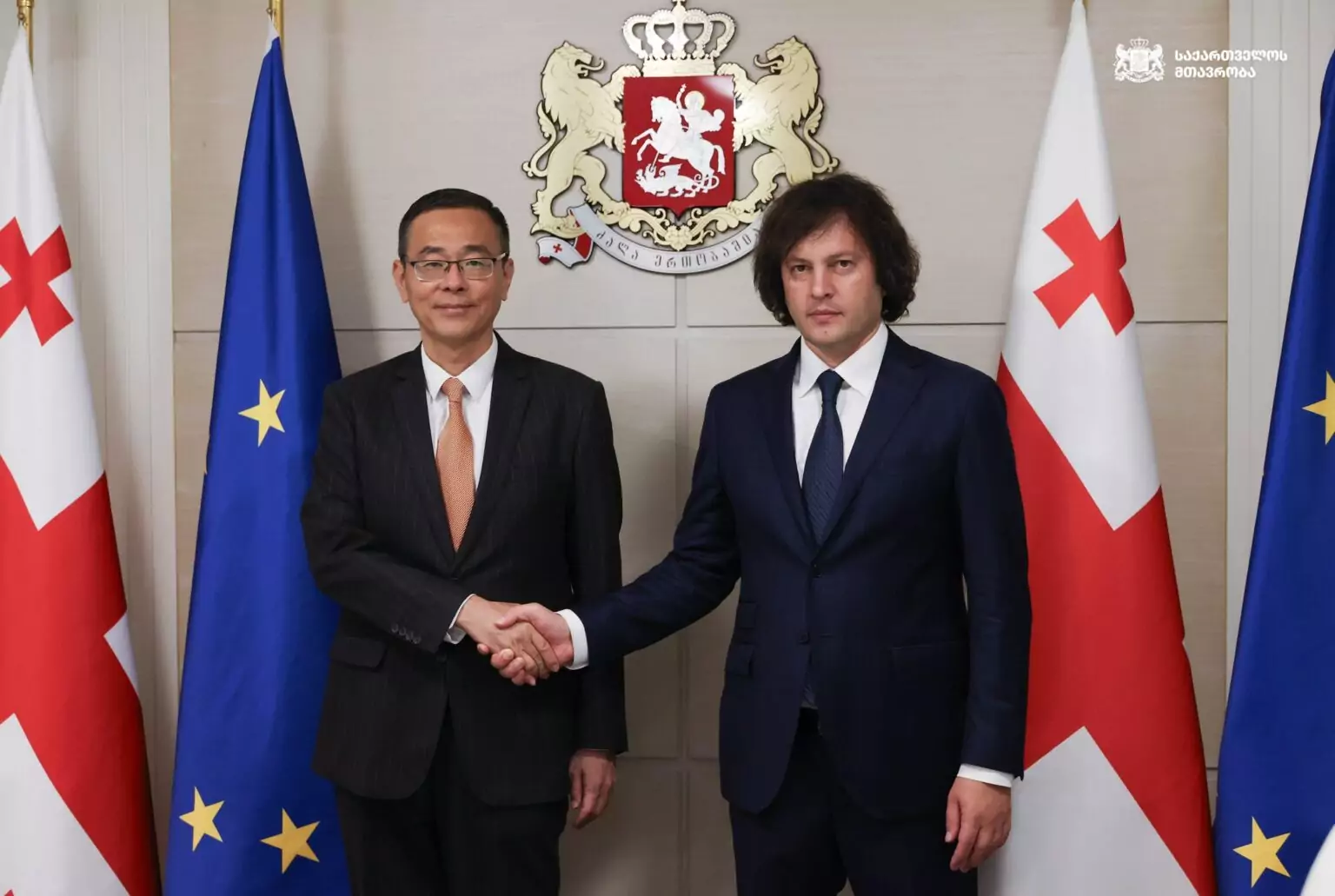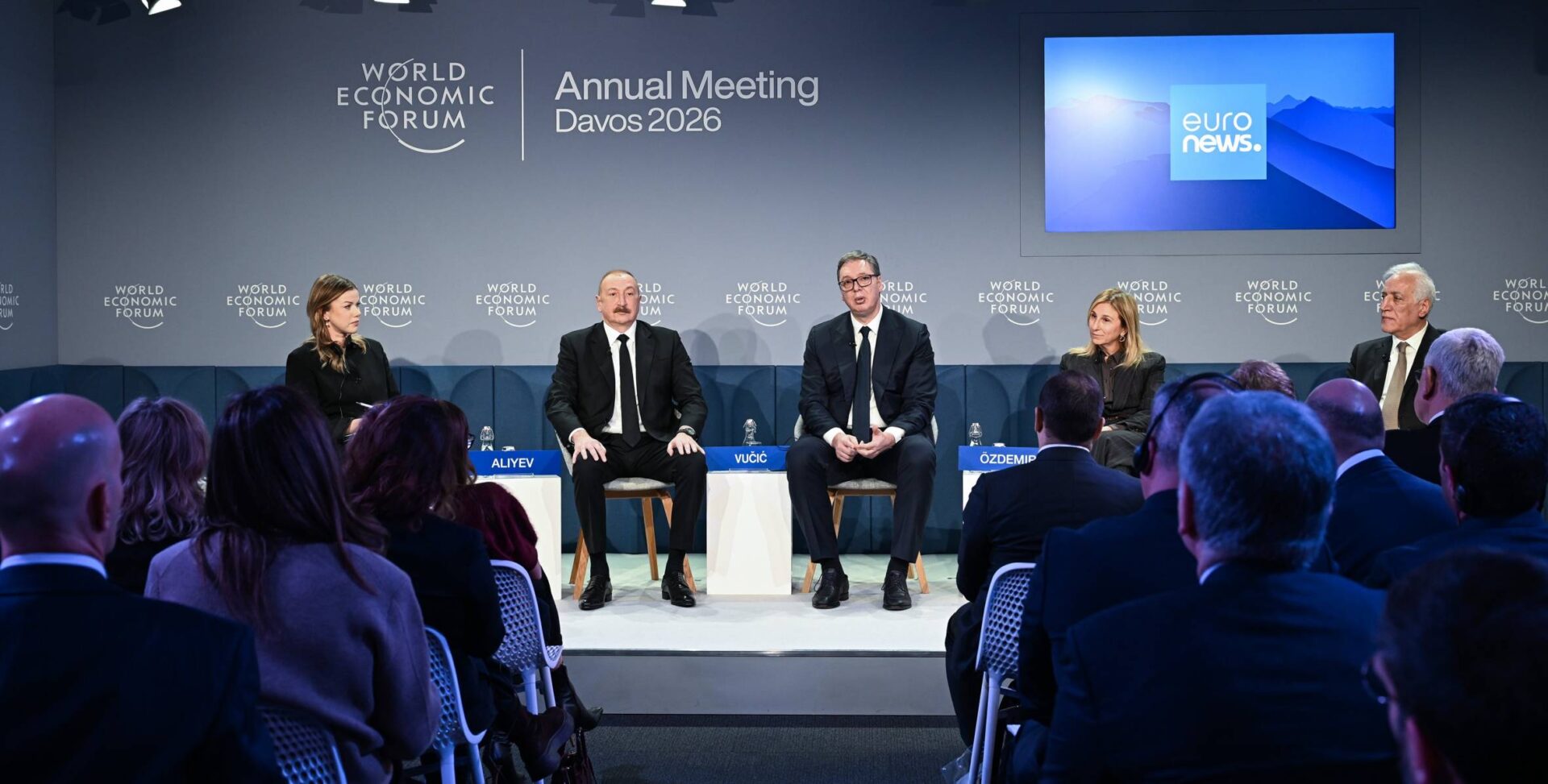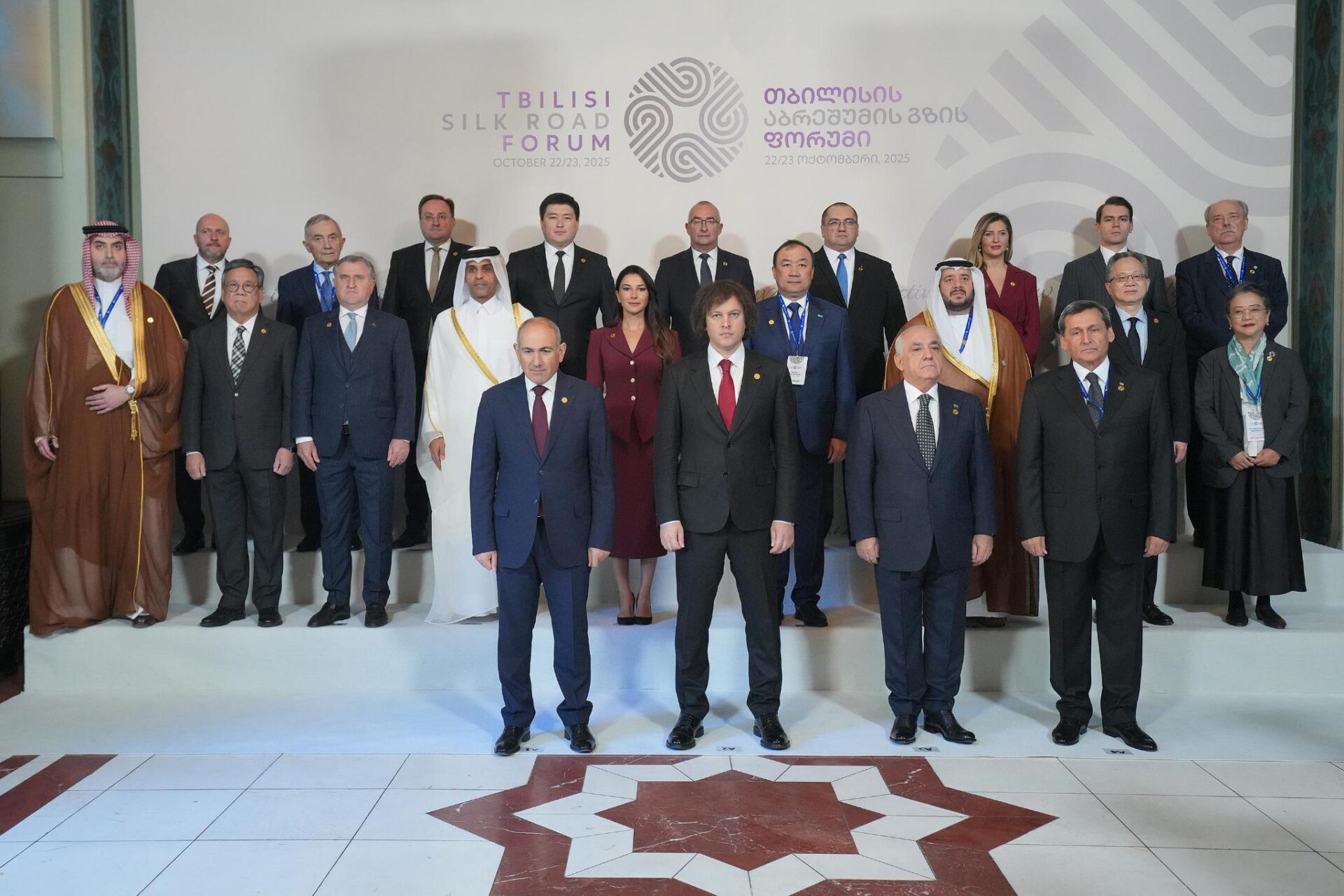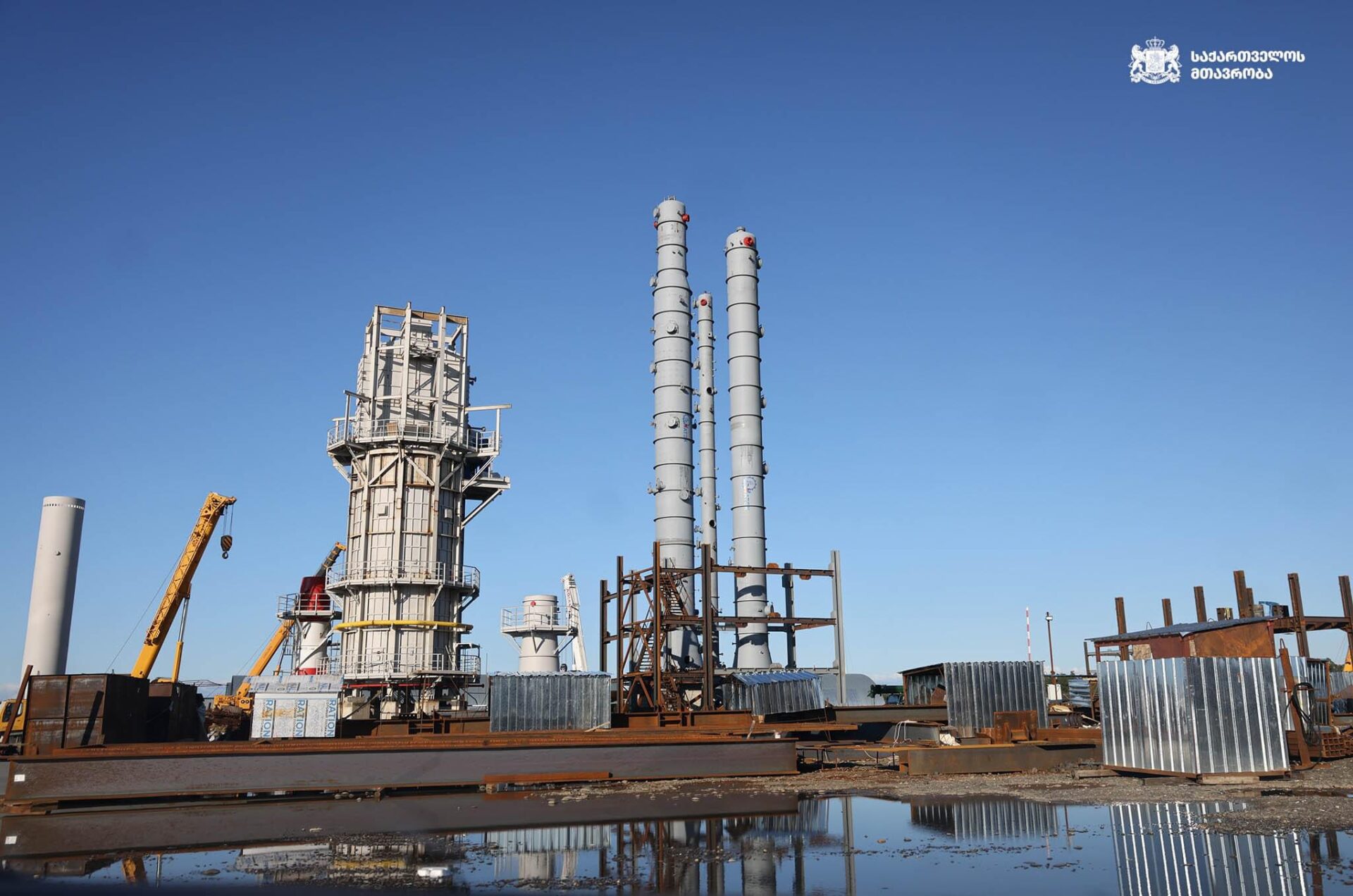
PRC–Georgian Strategic Partnership Fails to Deliver
PRC–Georgian Strategic Partnership Fails to Deliver
Executive Summary:
- Georgian officials and PRC diplomats present the PRC–Georgian strategic partnership as a path to Georgia’s prosperity, but reality shows minimal PRC investment in Georgia, trade imbalances that benefit Beijing, and PRC companies winning lucrative state contracts in Georgia.
- Beijing consistently abstains or opposes United Nations votes on Georgia’s territorial integrity, aligning instead with Russia, highlighting how the partnership advances Beijing’s influence while undermining Georgia’s sovereignty and Euro-Atlantic aspirations.
- PRC investments in Georgia remain minimal as Tbilisi’s trade deficit with Beijing continues to grow and lucrative state contracts—for projects often funded by Western or Georgian taxpayers—disproportionately flow to PRC companies.
On September 29, Georgian Prime Minister Irakli Kobakhidze and the People’s Republic of China (PRC) ambassador to Tbilisi, Zhou Qian, headlined an embassy event commemorating the 80th anniversary of victory in World War II (Imedi.ge, September 29). What might have been a ceremonial remembrance quickly turned into a stage for political messaging. Kobakhidze lavished praise on Beijing, describing the PRC as “the most prosperous and exemplary country” and holding up PRC–Georgian ties as a model for Georgia’s economic future (1tv.ge; Interpress News, September 29). The PRC’s envoy echoed this sentiment, framing bilateral cooperation as the guarantor of shared prosperity and resilience.
Such rhetoric is not new, but it is increasingly detached from reality. Despite years of promises under the PRC–Georgian “strategic partnership,” tangible economic benefits remain elusive (see EDM, March 31). Behind the celebratory speeches lies a stark gap: overpromised prosperity, no significant investment, limited trade, and a swelling pipeline of lucrative contracts for Chinese Communist Party (CCP)-affiliated companies in Georgia. In practice, the partnership functions less as a development engine and more as a narrative tool. Wrapped in talk of “mutual benefit,” it enables Beijing to project influence while Georgia gains little in return. The result is a widening gulf between glowing official claims and the harsh facts on the ground—false economic promises that mask creeping political and security vulnerabilities.
From its announcement in summer 2023, Tbilisi promoted the PRC–Georgian Strategic Partnership as a turning point that would deliver prosperity and elevate Georgia’s role as a “gateway” between East and West. Tbilisi amplified Beijing’s slogans about “win-win cooperation” and the One Belt One Road (OBOR) initiative, while PRC diplomats cast Georgia as a model partner in the South Caucasus (see EDM, June 10). Ambassador Zhou Qian recently made a statement that Georgia’s regime has applauded, claiming,
[Georgia and the PRC] stand together in safeguarding our core interests, sovereignty, security, and territorial integrity … Since the establishment of a strategic partnership in 2023, political mutual trust … [and] economic and trade cooperation [have] maintained a positive momentum. In 2024, bilateral trade reached $2.25 billion, an annual increase of 10 percent … China is ready to work with Georgia … to make the mutually beneficial cooperation … bring even greater benefits to our people (Imedi.ge, September 29).This celebratory discourse masks the absence of substance in the bilateral relationships, and lofty official declarations are not matched by evidence. The relationship is built on overstatement, selective omission, and promises that do not materialize. The “strategic partnership” projects an image of transformation that has not arrived. This 30-second messageby the ambassador rests on four pillars that define cooperation between any two states: mutual respect for sovereignty and unwavering support for territorial integrity; positive dynamics in economic cooperation, reflected most importantly in direct investments; growth in trade; and mutually beneficial conditions between partners. Each “pillar” collapses when tested against the PRC’s performance in Georgia.
Unwillingness to Vote for Georgia’s IDP Resolution in United Nations
The PRC understands precisely what is at stake for a country where 20 percent of its territory remains under the occupation of Russia, Beijing’s declared “friend” and “strategic ally.” Instead of acknowledging this reality, however, the PRC continues to offer false assurances. The record speaks louder than rhetoric. Since the 2008 Russian invasion of Georgia, the PRC has not voted in favor of Georgia’s territorial integrity at the United Nations. On the contrary, Beijing has generally abstained from supporting the annual UN resolution on the rights of internally displaced persons (IDPs) from Georgia’s occupied territories, including from 2023 to 2025, as in every previous year (Civic IDEA, December 2023; Civil Georgia, accessed October 9). After Russia’s full-scale invasion of Ukraine in 2022, the PRC went a step further and voted against the Georgia resolution (Civil Georgia, June 9, 2022; UN Digital Library, accessed October 9).
This posture is not symbolic—it is strategic. As a permanent member of the UN Security Council, the PRC wields decisive influence. If Georgia’s case were ever brought before the Security Council, Beijing would almost certainly repeat its alignment with Moscow, rejecting the position endorsed by the United States, the North Atlantic Treaty Organization (NATO), the European Union, and democracies worldwide. In a future critical moment, whether the PRC will stand with the Russian Federation or with Georgia is not in question.
Relatively Small PRC Investments in Georgian Economy
The standard expectation of “economic cooperation” between two countries is positive dynamics—growth in trade, rising investments, freer markets, and new opportunities. This is the narrative often repeated in Tbilisi when praising ties with Beijing. The investment picture tells a different story. According to official data from the Georgian State Department of Statistics, which has tracked foreign direct investment since 1996, PRC investments have declined since the establishment of the Strategic Partnership in 2023 (Xinhua, August 31, 2023; Civic IDEA, September 6). In 2024, PRC investment in Georgia fell by 93 percent compared to the previous year, dropping to just $6.2 million.

This collapse in PRC investment is not simply a statistical curiosity, but goes to the heart of Beijing’s intentions. If the PRC genuinely sought to support Georgia’s development, this would have been the moment to demonstrate it. Instead, the decline confirms a pattern seen across Eurasia. Beijing extracts strategic advantages through contracts, loans, and access to markets rather than committing long-term capital that could generate sustainable growth. Georgia provides market access and political capital, and the PRC avoids real economic risk. This dynamic is not a partnership; it is a transaction in which Georgia gives far more than it receives.
The Georgian government presents these minimal figures as evidence of progress. Official speeches and statements routinely inflate the significance of projects undertaken with the PRC, portraying them as cornerstones of economic development. The scale of Beijing’s investment is so marginal that it barely registers compared to Georgia’s established partners. The PRC does not even rank among Georgia’s top ten investors. It lags not only behind major partners such as the United Kingdom, United States, European Union, and Türkiye, but also behind small states such as Malta and Luxembourg. By exaggerating Beijing’s role, the government not only misleads the public but also obscures the real sources of economic growth—Western markets, remittances, and EU-linked investments—while amplifying a narrative of dependence on the PRC that serves Beijing’s strategic interests rather than Georgia’s prosperity.

The following chart shows how foreign direct investment from the PRC compares to that of Georgia’s traditional strategic partner countries for the period since the announcement of the Tbilisi–Beijing strategic partnership.

Growing Trade Deficit
Since 2023, Georgia–PRC trade has increased. In 2024, bilateral trade reached $1.9 billion—a figure $500 million short of the number publicly promoted by Qian. This is not the first time the ambassador has been caught inflating statistics. In 2024, he declared that “according to Chinese statistics, bilateral trade exceeded $2 billion [in 2023]” even as Georgia’s official data placed the number significantly lower, at $1.6 billion (Civil Georgia, January 22, 2024; SP News, December 2, 2024).
Beyond exaggeration about the extent of total trade lies a deeper problem—the trade relationship is profoundly imbalanced. “Mutually beneficial cooperation” is an illusion when PRC exports to Georgia vastly outweigh Georgian exports to the PRC (Transparency International Georgia, March 1). PRC exports dominate, saturating the Georgian market with manufactured goods, while Georgian producers struggle to secure even a marginal foothold in Beijing’s tightly protected market. Such export dominance by the PRC is a familiar pattern in its relationship with many small economies. Still, Georgia’s problem is sharper. Its already limited share of exports to the PRC decreases year after year, meaning there is not even consistency in growth (Civic IDEA, September 25, 2024). For Beijing, the relationship expands influence and profit; for Georgia, it deepens dependence on the PRC without delivering real prosperity (Transparency International Georgia, May 22). The negative trade balance in Q1 2024 was 53 percent larger than in Q1 2023. In Q1 2025, imports from the PRC were 5.7 times higher than Georgia’s exports to Beijing. Far from creating prosperity, this trade imbalance structure cements Georgia’s dependency on the PRC, bringing economic strain and mounting political costs.

PRC Companies Winning Georgian Contracts Demonstrates Lack of Reciprocity
The pattern established by the trade imbalance and the PRC’s lack of investment in Georgia is reinforced by PRC companies winning contracts in Georgia. Over the past several years, PRC companies have repeatedly secured lucrative deals in Georgia, often through non-competitive tenders or procedures that raise questions over transparency and fairness (Civil Georgia, January 22, 2024; Democracy and Freedom Watch, October 3). The financial scale of these contracts is staggering when compared to actual PRC investment flows. The E60 East–West Highway project illustrates the magnitude of these contracts. PRC companies executed eight sub-projects worth nearly $1.6 billion, which exceeds the entire volume of the PRC’s foreign direct investment in Georgia (Civic IDEA, September 2025).
The “strategic partnership” does not see PRC investment flowing into Georgia, but Western and Georgian taxpayers’ money flowing out to the PRC and its state-owned corporations. Projects financed by international donors and Georgia’s own budget have enriched Beijing, while doing little to generate genuine prosperity for Georgia. What remains behind is not development, but dependency, weakened governance, and a deeper foothold for Beijing in the country’s strategic sectors.
Civic IDEA, a Georgian think tank chaired by this author, has documented how these procurement practices erode Georgia’s governance standards (Civic IDEA, September 2025). State institutions have repeatedly awarded contracts to PRC companies with well-known records of corruption and misconduct. The results form a consistent pattern:
- Lack of due diligence by Georgian state agencies;
- Tender conditions manipulated to favor PRC bidders;
- Chronic delays and repeated failures to fulfill contractual obligations;
- Systematic violations of labor rights and environmental norms;
- And corrupt, nepotistic practices that weaken public institutions and erode trust.
The implications for Washington and Brussels are stark. U.S. and EU taxpayers are, in effect, unintentionally underwriting Beijing’s influence in Georgia. Money that was intended to strengthen Georgia’s development and anchor its Euro-Atlantic integration is instead flowing into the reserves of PRC-affiliated companies, fueling corruption and pushing the country further away from its democratic partners (Civic IDEA, September 2025).
Conclusion
Far from embodying “mutually beneficial cooperation,” these practices reveal the strategic partnership to be profoundly one-sided. Georgia does not receive investment, prosperity, or sustainable growth. Instead, it subsidizes PRC corporations while weakening its own institutions. This reality demonstrates that the language of partnership serves a political purpose. It creates the illusion of shared gain while masking a system designed to favor Beijing alone. It is precisely this political exploitation of economic promises that now forms a central pillar of the Georgian government’s narrative. Despite self-congratulatory discourse, Georgia has not seen the promised economic transformation. The PRC’s engagement has instead brought overblown rhetoric, underdelivered investment, and growing risks to sovereignty.
The PRC–Georgia partnership is defined by the gulf between rhetoric and reality. Promises of prosperity conceal a strategic project: to embed PRC influence in critical sectors while offering little genuine growth. Georgia is not unique—this pattern mirrors Beijing’s playbook elsewhere. For Tbilisi, the real cost of chasing PRC “economic miracles” is delayed development, weakened sovereignty, and deeper authoritarian entanglements.


